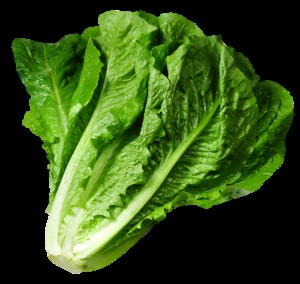By Chef Nancy Berkoff, EdD, RD
HEADS UP: there are two large categories of lettuce, head lettuce and leaf lettuce. Until recent years, the most popular head lettuce was iceberg. And why, might you ask, is this green-on-the-outside, white-on the inside called “iceberg?” No, it has nothing to do with the Titanic. When iceberg lettuce was first commercialized on a large scale it had to be covered with ice so it would not wilt during shipping. There, now you know.
OIL BE DARNED: Lettuce was originally valued for the oil pressed from its seeds. We’re talking at least 4,500 years ago. There are documents proving that the Persian nation ate lettuce leaves at least as far back as 600 BCE. The ancient Greeks and Romans valued lettuce as both a vegetable and a remedy. The word lettuce comes from the Latin “lactuca,” which comes from “lactus,” which means “milk,” because, when cut, lettuce leaves tend to give off a milky sap.
GREEN, RED, WHITE, AND BEYOND: Lettuce leaves are generally green, but they also come in red, white, pale yellow, and faintly purple Whichever color you choose, be sure the leaves are glossy, firm and crisp. For head lettuce, be sure the head is dense (the leaves should be closely packed) and that the head feels heavy for its size. Leaf lettuce should have firm, crisp leaves that have a clearly defined rib down the center. Always avoid dull-looking, rusty, soggy or yellowing leaves.
THE GREENER THE LETTUCE…generally the more vitamins and minerals it contains. Most varieties have a fair amount of folic acid (an important B vitamin), are helpful for hydration and are low in calories and sodium. Deep green lettuces, such as romaine or Boston are higher in nutrients then the paler varieties, such as iceberg.
FIRE AND ICE: lettuce is usually eaten raw, but a classic French garnish, called “chiffonade,” is a light sauté of shredded lettuce in a small amount of vegetable oil. So, impress the folks with “petit pois a la francaise,” baby peas with a garnish of sautéed lettuce. Lettuce can be quickly braised in vegetable stock and place on top of a cold salad for a “fire and ice” creation. Toss chopped lettuce leaves into soup right before serving—the broth will cook the leaves. Lettuce gives a light, refreshing flavor to soups. Add interest to cold lettuce salads by combining several types of lettuce (bagged, ready-to-use lettuces are great for this).
Petits Pois a la Francaise
(Serves 6-8)
2 Tablespoons vegetable oil of your choice
3 cups freshly shelled or frozen peas
1 cup finely shredded head lettuce, such as Iceberg
1/2 cup chopped green onions (white part only)
1 teaspoon ground black pepper
1/8 teaspoon sweetener
Wash fresh peas and pat dry. If using frozen peas, do not thaw. Heat a large frying pan, add oil. Add peas to the pan and heat and toss briefly, to coat, about one minute. Add all remaining ingredients and toss to combine. Put heat on low, cover, and simmer until peas are just tender, about 5 minutes. Serve immediately.


